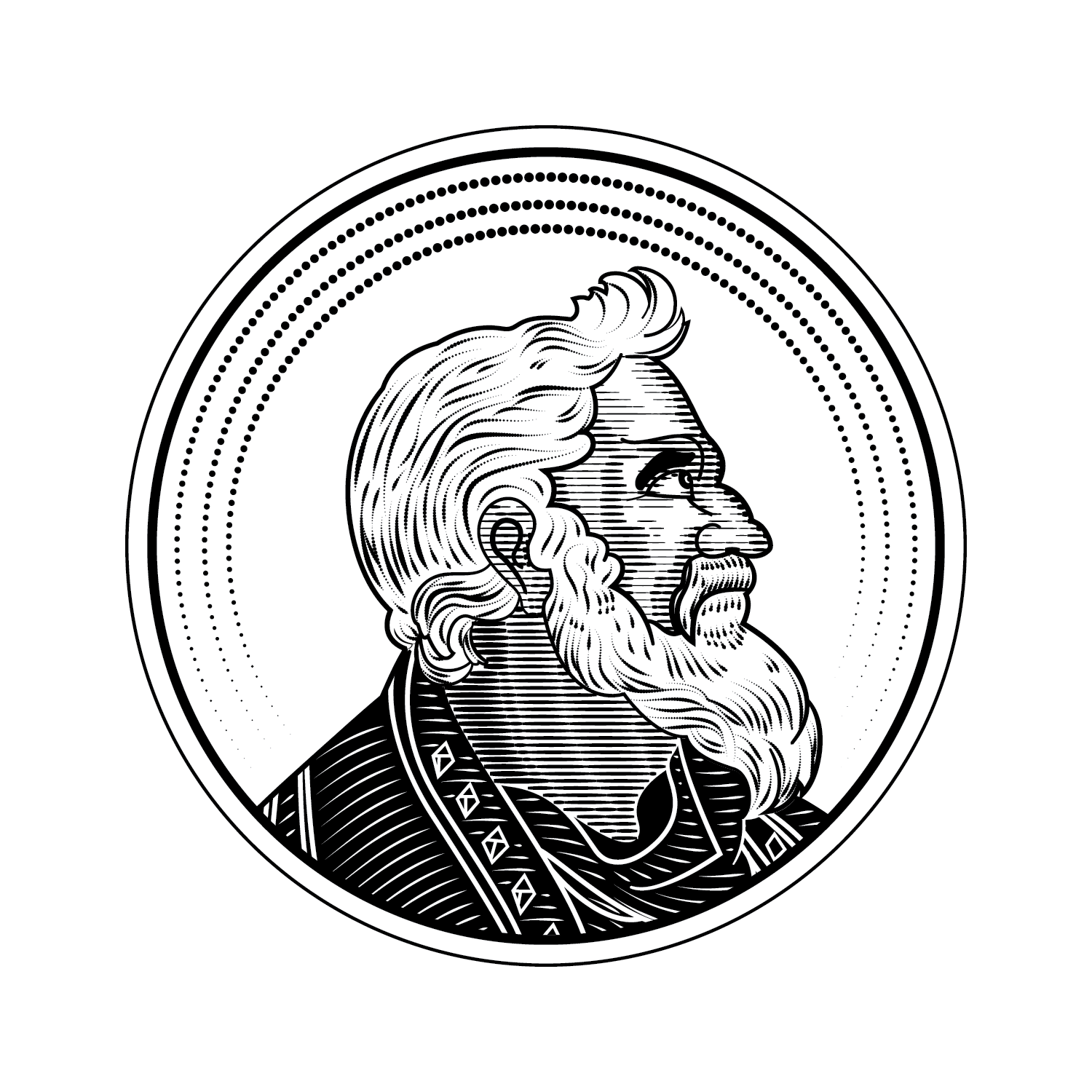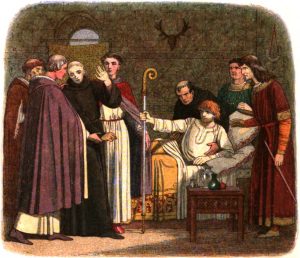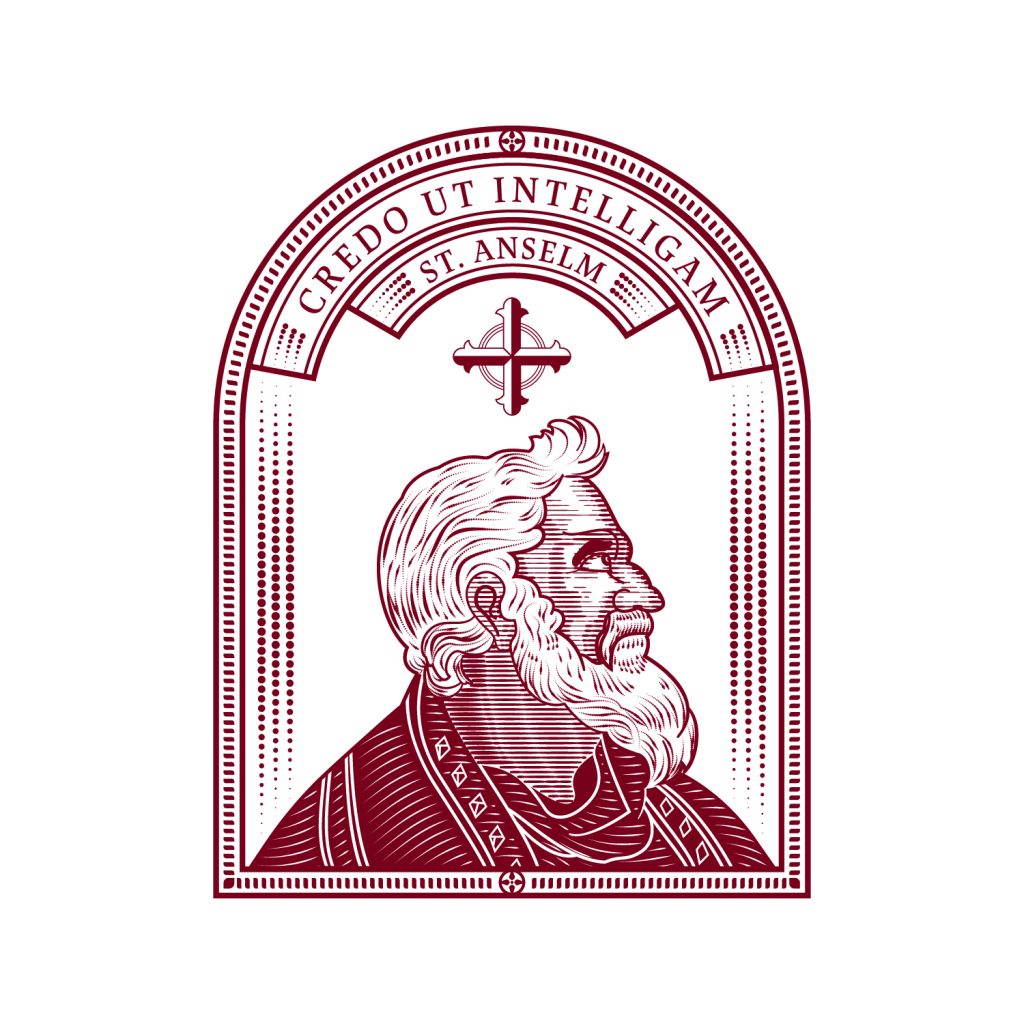
Join us in a
Celebration of Anselm of Canterbury
I do not seek to understand in order that I may believe, but rather, I believe in order that I may understand.
God has made nothing more valuable than rational existence capable of enjoying him.
Come now, insignificant man, fly for a moment from your affairs, escape for a little while from the tumult of your thoughts. Put aside now your weighty cares and leave your wearisome toils. Abandon yourself for a little to God and rest for a little in Him.
– Anselm of Canterbury
 This year’s celebrated saint is the medieval scholar and theologian Anselm of Canterbury, who lived during the 11th century and whose works many of our students encounter in their junior years. Saint Anselm reminds us that the business of theology is not a dry exercise of abstract propositions about God but rather a process of faith seeking understanding in a relationship with the Creator. In what might be considered his most famous discourse, the Proslogion, he points out that our ability to know the truth is paradoxically related to the conditions of our belief. Taking a hint from Augustine of Hippo, Anselm says, “I do not seek to understand in order that I may believe, but rather, I believe in order that I may understand” (Pros. 1). This became the motto of many Christian scholars: Credo ut intelligam. “I believe that I might understand.” For Anselm, the basis of his own understanding began not with his doubts but with God himself.
This year’s celebrated saint is the medieval scholar and theologian Anselm of Canterbury, who lived during the 11th century and whose works many of our students encounter in their junior years. Saint Anselm reminds us that the business of theology is not a dry exercise of abstract propositions about God but rather a process of faith seeking understanding in a relationship with the Creator. In what might be considered his most famous discourse, the Proslogion, he points out that our ability to know the truth is paradoxically related to the conditions of our belief. Taking a hint from Augustine of Hippo, Anselm says, “I do not seek to understand in order that I may believe, but rather, I believe in order that I may understand” (Pros. 1). This became the motto of many Christian scholars: Credo ut intelligam. “I believe that I might understand.” For Anselm, the basis of his own understanding began not with his doubts but with God himself.
Recall that when the disciple Thomas refuses to accept Christ’s resurrection, it was on the basis of his skepticism. When the other disciples reported to him that they had seen the risen Christ, Thomas essentially responded with, “I’ll believe it when I see it” (John 20:24). In this way, he was acting like a good modern materialist. But Jesus confronts Thomas and confirms that the blessing is not necessarily in the “seeing” but in the “believing”:
“Thomas, because you have seen Me, you have believed. Blessed are those who have not seen and yet have believed” (John 20:29).
Anselm’s motto (Credo ut intelligam) captures what Christ was teaching Thomas: that our knowledge of the truth, in some mysterious and paradoxical way, flows from the presuppositions of our belief in Him who is the Truth.
Today we dwell in a society of unbelief, in a culture that has turned its back on the very faith that allowed it to see basic truths about Reality. When this happens, all sorts of fundamental questions arise. What is a woman? What is marriage? What is the good life? We used to have stable answers to these, but now they have become contestable and indefinable. This is important for those of us in the business of teaching and discipling the nations within the classical Christian tradition. We do have the answers, and we need only faithfully hand them on the next generation. But we mustn’t forget that it begins, as Saint Anselm demonstrated, with belief.
Come to RTR 2024, “A Celebration of Anselm of Canterbury”, to hear more!







